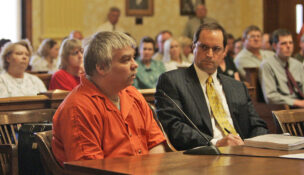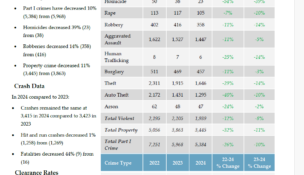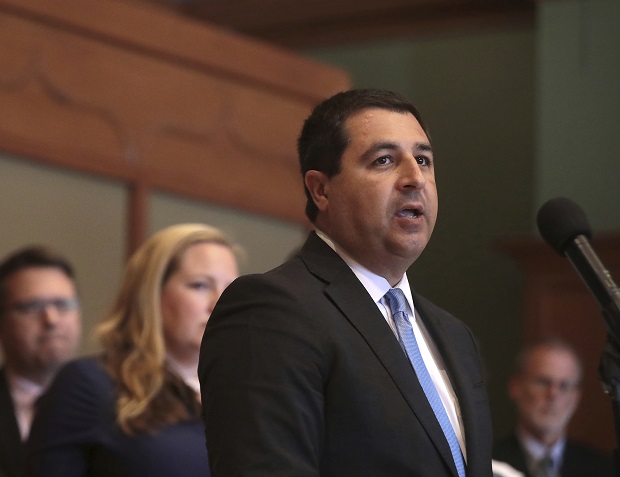Justices hold Privacy Act doesn’t cover mental, emotional damages
By: CORREY E STEPHENSON//March 29, 2012//
Justices hold Privacy Act doesn’t cover mental, emotional damages
By: CORREY E STEPHENSON//March 29, 2012//
By Correy Stephenson
Dolan Media Newswires
The Privacy Act does not unequivocally authorize damages for mental or emotional distress and therefore, the Government has not waived sovereign immunity for such claims, the U.S. Supreme Court has ruled.
In the case before the Court, a pilot intentionally failed to disclose his HIV status to the Federal Aviation Administration as required to receive a medical certificate to operate aircraft. He later disclosed his condition to the Social Security Administration in order to receive long-term disability benefits.
After the SSA disclosed his medical records to the FAA, the pilot’s license was revoked and he was charged with submitting false reports to a federal agency.
He filed suit under the Privacy Act, alleging that the disclosure of his medical records resulted in mental and emotional distress.
But a U.S. District Court granted summary judgment for the agencies, holding that the pilot’s claimed injuries were not compensable under the Act, which only allows recovery for “actual damages.” The 9th Circuit reversed.
The U.S. Supreme Court granted certiorari and heard oral argument in November.
Writing for the majority, Justice Samuel Alito Jr. said the scope of the government’s waiver to be sued must be construed in favor of the sovereign, reversing the 9th Circuit.
“Actual damages” has been interpreted by courts to include mental and emotional distress, Alito acknowledged, but it has also been construed more narrowly to authorize damages only for pecuniary harm.
“When waiving the Government’s sovereign immunity, Congress must speak unequivocally. Here, we conclude that it did not. As a consequence, we adopt an interpretation of ‘actual damages’ limited to proven pecuniary or economic harm. To do otherwise would expand the scope of Congress’ sovereign immunity waiver beyond what the statutory text clearly requires,” the Court said.
Justice Sonia Sotomayor authored a dissent which was joined by Justices Stephen G. Breyer and Ruth Bader Ginsburg; Justice Elena Kagan took no part in consideration of the case.
U.S. Supreme Court. Federal Aviation Administration v. Cooper, No. 10-1024.
Legal News
- Steven Avery prosecutor Ken Kratz admits ‘mistakes were made’
- Colombian national extradited to Milwaukee faces International narcotics-trafficking conspiracy charge
- MPD: Milwaukee homicides down nearly 40 percent compared to last year
- EVERS: Republican lawmakers No-Show at special meeting to release statewide PFAS funding, stabilize healthcare access
- Wisconsin ICAC Task Force conference on Missing and Exploited Children highlights increase in sextortion cases
- More than 300 Wisconsin officers back in law enforcement after being fired or forced out
- Former Trump staffer who said to ‘fan the flame’ after 2020 loss hired to lead Wisconsin GOP
- Gov. Evers appoints David Casey to Serve as DOR Secretary
- Former Marine sentenced for Molotov Cocktail attack against Planned Parenthood Clinic
- ABA names 34th Annual Margaret Brent Women Lawyers of Achievement Awards honorees
- FBI launches criminal investigation into Key Bridge collapse
- Man charged in slaying after woman’s leg found at Milwaukee-area park
WLJ People
- Power 30 Personal Injury Attorneys – Russell Nicolet
- Power 30 Personal Injury Attorneys – Benjamin Nicolet
- Power 30 Personal Injury Attorneys – Dustin T. Woehl
- Power 30 Personal Injury Attorneys – Katherine Metzger
- Power 30 Personal Injury Attorneys – Joseph Ryan
- Power 30 Personal Injury Attorneys – James M. Ryan
- Power 30 Personal Injury Attorneys – Dana Wachs
- Power 30 Personal Injury Attorneys – Mark L. Thomsen
- Power 30 Personal Injury Attorneys – Matthew Lein
- Power 30 Personal Injury Attorneys – Jeffrey A. Pitman
- Power 30 Personal Injury Attorneys – William Pemberton
- Power 30 Personal Injury Attorneys – Howard S. Sicula











